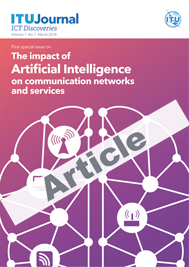 | Next generation wireless networks (i.e. 5G and beyond), which will be extremely dynamic and complex due to the ultra-dense deployment of heterogeneous networks (HetNets), pose many critical challenges for network planning, operation, management and troubleshooting. At the same time, the generation and consumption of wireless data are becoming increasingly distributed with an ongoing paradigm shift from people-centric to machine-oriented communications, making the operation of future wireless networks even more complex. In mitigating the complexity of future network operation, new approaches of intelligently utilizing distributed computational resources with improved context awareness becomes extremely important. In this regard, the emerging fog (edge) computing architecture aiming to distribute computing, storage, control, communication, and networking functions closer to end users, has a great potential for enabling efficient operation of future wireless networks. These promising architectures make the adoption of artificial intelligence (AI) principles, which incorporate learning, reasoning and decision-making mechanisms, natural choices for designing a tightly integrated network. To this end, this article provides a comprehensive survey on the utilization of AI integrating machine learning, data analytics and natural language processing (NLP) techniques for enhancing the efficiency of wireless network operation. In particular, we provide comprehensive discussion on the utilization of these techniques for efficient data acquisition, knowledge discovery, network planning, operation and management of next generation wireless networks. A brief case study utilizing the AI techniques for this network has also been provided. |
|